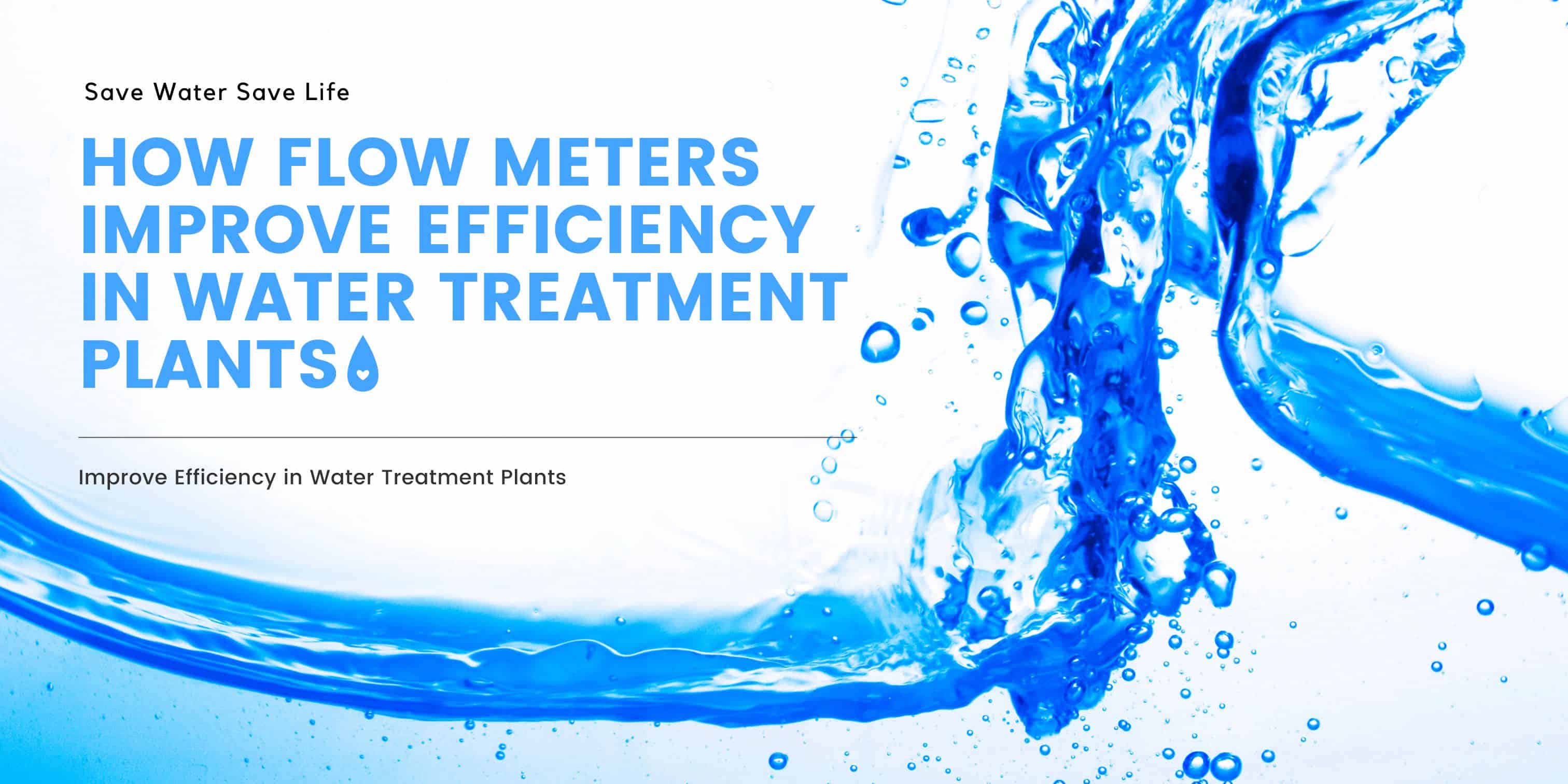 Phone
Phone

Water is a vital resource that demands careful management, especially in industrial and municipal settings. Water treatment plants are responsible for ensuring clean, safe water for human consumption, agriculture, and industry. To operate efficiently, these plants rely heavily on flow meters — precise instruments that measure the flow rate of water at various stages of treatment.
Though flow meters may seem like a small part of a massive system, they play a critical role in optimizing operations, reducing waste, saving energy, and ensuring compliance.
This blog explores how flow meters improve the efficiency of water treatment plants, and which flow meters are recommended for water treatment plants?
A flow meter is a device used to measure the volume or mass of a fluid (liquid or gas) that moves through a pipe. In water treatment plants, flow meters are used to monitor and manage the movement of raw water, treated water, and wastewater.
Depending on the type, flow meters measure flow using various technologies like electromagnetic fields, ultrasonic waves, or mechanical components. The data they provide is essential for:
Water treatment involves chemical dosing to disinfect, soften, or neutralize contaminants in water. Flow meters ensure that the right volume of water receives the correct amount of chemicals like chlorine, alum, or lime.
When chemical dosing is not aligned with flow volume, it can lead to overuse (which is costly and potentially harmful) or underuse (which leads to ineffective treatment). A well-calibrated flow meter allows for automated, proportional dosing, ensuring both safety and efficiency.
Result: Consistent water quality, lower chemical costs, and regulatory compliance.
Even minor leaks in a water treatment flow meter facility can lead to significant water loss, pressure imbalance, and increased pumping costs. By placing flow meters at various key locations in the system, operators can compare inflow and outflow data to quickly detect abnormalities.
Modern flow meters offer digital alerts and historical data analysis, allowing maintenance teams to spot and fix leaks or inefficiencies before they escalate into bigger problems.
Result: Reduced water waste and minimized downtime.
Pumps are one of the most energy-consuming elements in water treatment plants. If not managed properly, they may operate under unnecessary load conditions. Flow meters help track the real-time demand of water, enabling smarter pump scheduling and speed control.
When paired with variable frequency drives (VFDs), flow meters allow pumps to adjust to demand dynamically, avoiding excessive energy use and pump wear.
Result: Up to 20–30% reduction in energy consumption.
Many flow meters today come with smart, digital interfaces that allow integration with SCADA (Supervisory Control and Data Acquisition) systems. This enables real-time flow monitoring, data logging, and automated reporting.
Remote monitoring empowers plant managers to make informed decisions even when off-site. Automation ensures fewer human errors, faster response to irregularities, and consistent operational performance.
Result: Improved process control and reduced manual labor.
Water treatment is a highly regulated industry. Regulatory agencies require detailed records of water flow, treatment efficiency, and environmental impact. Flow meters provide accurate, timestamped data that simplifies the compliance and reporting process.
Whether it’s for environmental impact assessments, safety audits, or water usage reporting, flow meters play a key role in maintaining transparency and legal compliance.
Result: Smoother audits, reduced penalties, and stronger environmental stewardship.
Best for conductive fluids like treated water and wastewater. Highly accurate and low maintenance.
Use sound waves to measure flow. Suitable for both clean and dirty water. Non-invasive and ideal for retrofitting.
Use a rotating turbine to measure flow. Cost-effective and suitable for clean water.
Operate by measuring the pressure drop across an obstruction. Often used in high-pressure systems.
Used in more advanced systems where multi-phase flow or high accuracy is essential.
Visit Our Product Page: Flow Meter
Choosing the right flow meter is not just about measurement — it's about aligning with your plant’s efficiency goals and operational requirements.
A municipal water treatment plant in India was experiencing high chlorine costs and inconsistent water quality. After installing electromagnetic flow meters and automating the dosing system, they were able to reduce chemical usage by 15%, improve disinfection reliability, and reduce operator intervention by 30%.
At Burak Metering, we specialize in designing and manufacturing high-quality flow meters for water treatment, wastewater management, and industrial applications. With a strong focus on precision, durability, and digital innovation, our meters are built to meet the rigorous demands of modern water infrastructure.
Our product range includes electromagnetic, ultrasonic, and mechanical flow meters, all developed under strict quality standards to ensure reliability, efficiency, and long-term performance. Whether you're managing a municipal water plant or a private treatment facility, Burak Metering is your trusted partner in flow measurement excellence.
Flow meters are far more than just measuring tools — they are strategic assets that can transform the efficiency and sustainability of water treatment plants. From reducing chemical and energy consumption to detecting leaks and meeting compliance standards, flow meters enable smarter, data-driven operations.
As water becomes an increasingly valuable resource, investing in the right flow metering technology is not only smart — it’s essential.